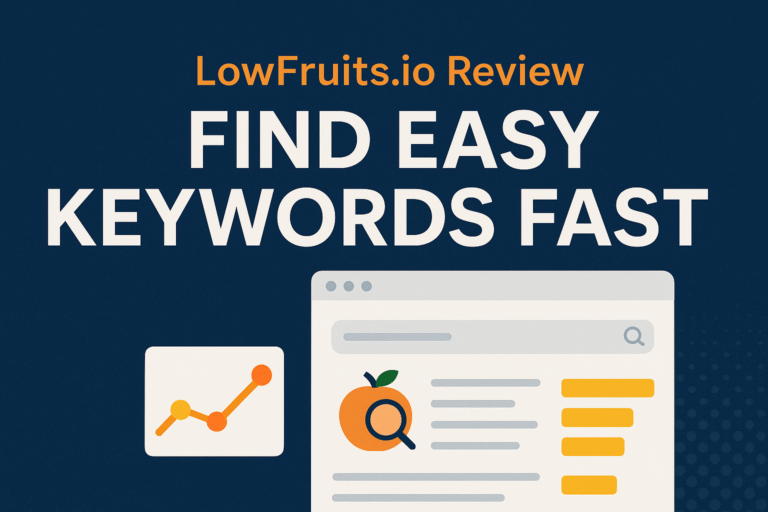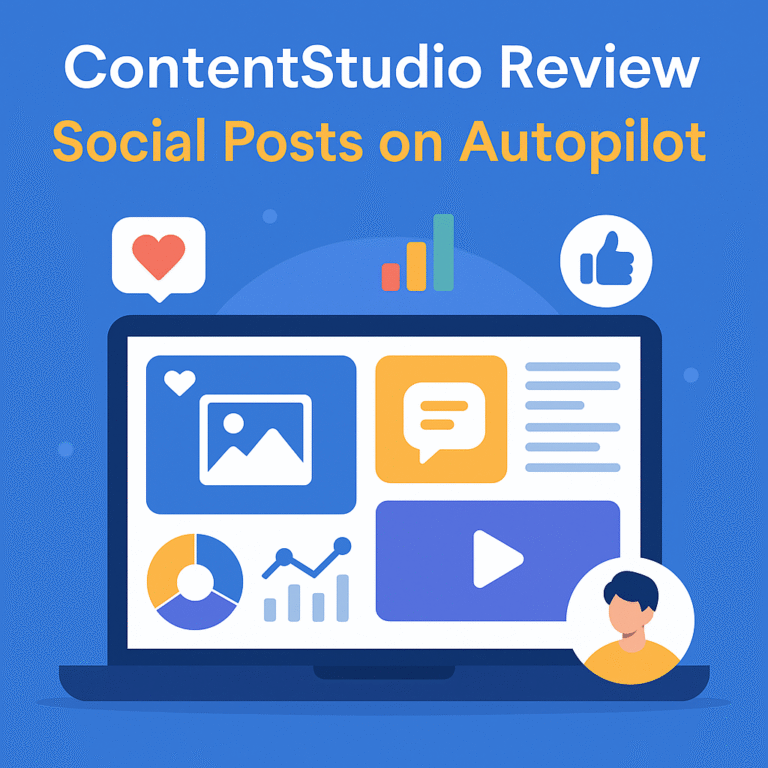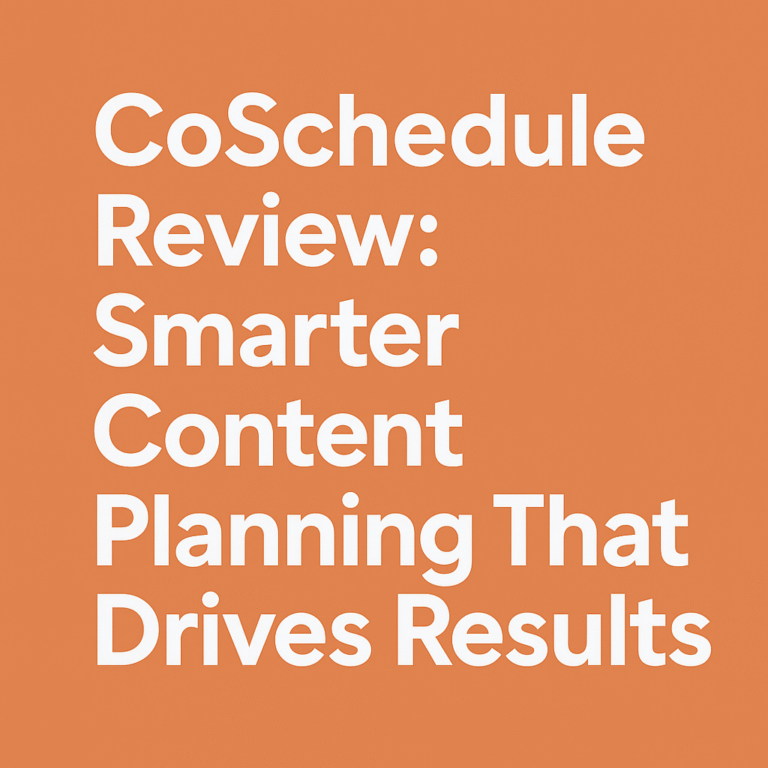
Introduction
Running an e-commerce store is a thrilling ride—until you’re drowning in tasks, burning through ad spend, and still missing your sales targets. That’s where the Best AI Tools for E-commerce Stores come in to save the day, like your digital dream team working 24/7 without coffee breaks.
Artificial Intelligence (AI) isn’t just some sci-fi buzzword anymore—it’s the silent engine behind every high-performing e-commerce empire. Whether you’re a solo entrepreneur running a Shopify side hustle or a team scaling a seven-figure storefront, integrating AI can amplify your results and automate your grind.
From personalized product recommendations to dynamic pricing engines and automated support, AI transforms e-commerce chaos into clean, scalable systems. Ready to uncover the ultimate list of game-changing tools that can elevate your store from ‘just another shop’ to ‘next big thing’? Let’s explore the Best AI Tools for E-commerce Stores and how they can fuel your next big breakthrough.
Best AI Tools for E-commerce Stores
Every winning store has a secret weapon: automation and intelligence. The Best AI Tools for E-commerce Stores are designed to take the heavy lifting off your shoulders, optimize your sales funnel, and deliver an unmatched shopping experience. Below, we explore how each AI category plays its role in your success story.
Understanding AI in E-commerce
E-commerce and AI go together like peanut butter and jelly. Artificial Intelligence helps stores predict customer behavior, personalize the shopping journey, reduce cart abandonment, and scale operations—all while you sleep.
Retail giants like Amazon and Walmart use AI to power everything from product recommendations to supply chain optimization. But guess what? These same technologies are now available to everyday online entrepreneurs through affordable, plug-and-play tools.

AI Product Recommendation Engines
Tools like Clerk.io, Nosto, and Recombee scan a shopper’s behavior and instantly suggest products they’re most likely to buy. This isn’t magic; it’s machine learning in action.
By tapping into browsing history, previous purchases, and current site activity, these tools drive conversion rates through the roof. Think of it as a super-smart sales assistant who knows your customer’s taste better than they do.
AI Chatbots and Virtual Shopping Assistants
Imagine having a team of sales reps ready to answer questions, upsell, and resolve issues—without ever paying hourly wages. AI chatbots like Tidio, ManyChat, and Drift handle customer interactions with flair and efficiency.
They reduce bounce rates, resolve FAQs, and help guide customers to checkout. Even better? They work around the clock, across languages, and on every device.
AI for Customer Support Automation
Customer support can drain your time and energy. Enter AI-driven helpdesk platforms like Zendesk AI, Freshdesk AI, or Ada. These tools resolve tickets automatically, route issues intelligently, and even detect frustration in messages.
By cutting human error and response time, you boost satisfaction and loyalty—all while focusing on growing your brand.
AI for Sales Funnel and Conversion Optimization
Conversion rate optimization (CRO) is both science and art. AI tools like ConvertCart, Pencil, and OptiMonk analyze visitor behavior in real time and adjust website elements like CTAs, banners, or even checkout flows.
The result? Higher conversions, fewer cart abandonments, and smarter upsells without manual A/B testing.

AI-Powered Email Marketing Tools
Gone are the days of blasting generic emails. Tools like MailerLite AI, Klaviyo, and Omnisend segment users automatically and craft hyper-personalized messages.
AI looks at customer lifecycle stages, purchase history, and engagement patterns to send the right message at the right time. Think more sales, fewer unsubscribes.
Social Media Management with AI
Struggling to keep your Instagram or TikTok buzzing? Tools like Predis.ai, Lately.ai, and Ocoya auto-generate content, optimize post timing, and even write captions.
They spot viral trends and suggest high-performing creatives—so you can go viral without spending hours on Canva or ChatGPT.
Dynamic Pricing and AI Price Optimization
Pricing too high scares customers. Too low, and you lose profit. AI tools like Prisync, Intelligems, and DynamicPricing.AI adjust your prices in real-time based on competitors, demand, and even stock levels.
These tools keep you competitively priced without ever lifting a finger.
Inventory and Supply Chain AI Tools
Overstocking is costly. Understocking? Worse. Inventory AI tools like Ecomdash, Flieber, and TradeGecko use predictive analytics to forecast demand and suggest restocking windows.
By syncing demand with supply, you cut waste, avoid stockouts, and improve cash flow.
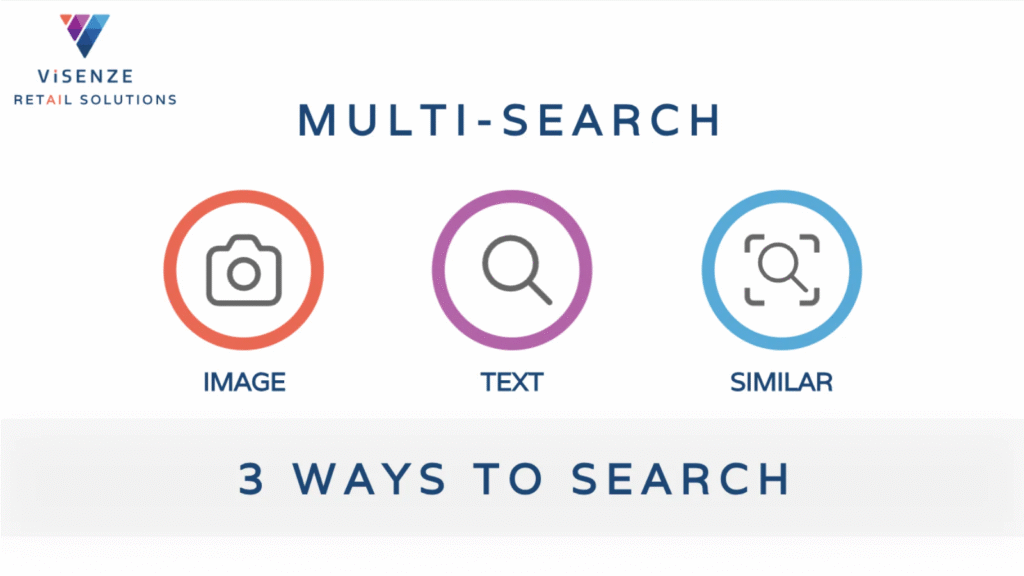
AI for Visual Search and Product Tagging
AI doesn’t just look at data—it sees images too. Visual search tools like Syte, ViSenze, and Clarifai allow shoppers to search using pictures.
Pair that with auto-tagging tools that analyze and label your product images, and you’re suddenly running a store that “sees” what customers want before they say a word.
Voice Commerce and AI Assistants
With Alexa and Google Home on the rise, voice commerce is booming. Tools like Jetson AI help your store integrate with voice searches and purchases.
From “order my favorite protein shake” to “find me a red dress under $50,” voice-based shopping is not the future—it’s now.
AI for Fraud Detection and Security
E-commerce fraud is a nightmare. AI tools like Signifyd, Kount, and FraudLabs Pro spot shady transactions, abnormal patterns, and chargeback risks before they cost you.
Their predictive risk scoring keeps your business safe without scaring off legit customers.
Customer Segmentation AI Tools
Generic marketing is dead. Segment.ai, Lexer, and Exponea divide your audience based on behavior, spend level, demographics, and more.
These tools help tailor offers, improve targeting, and deliver personalized campaigns that resonate deeply.
AI in Shipping and Logistics
Logistics isn’t sexy, but it’s essential. AI platforms like ShipHawk, Route4Me, and Deliverr AI optimize routes, reduce shipping times, and predict delivery issues.
With AI predicting fulfillment needs and bottlenecks, customers stay happy—and you save money.
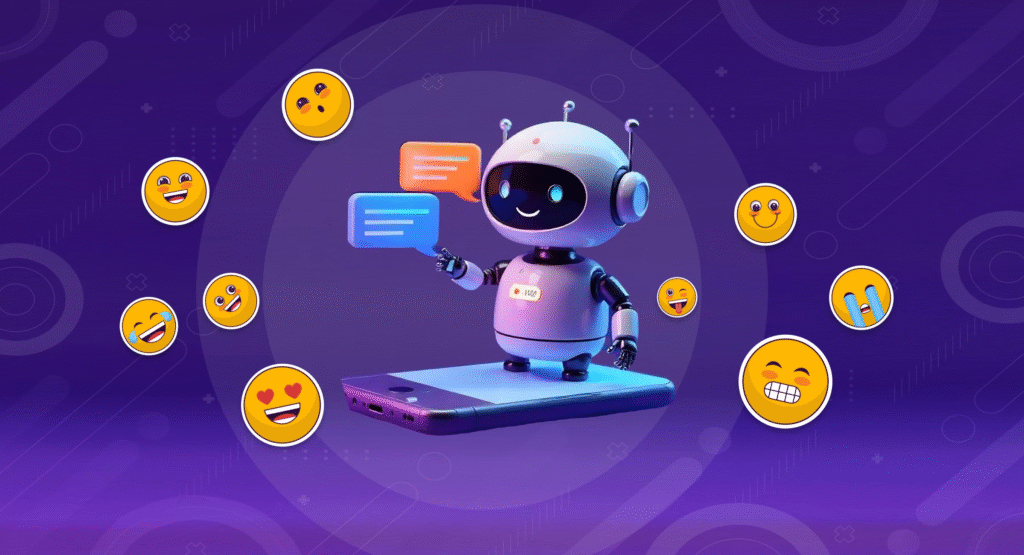
AI Sentiment Analysis for Reviews and Feedback
Want to know how customers really feel? Tools like MonkeyLearn, Lexalytics, and Chattermill scan reviews, messages, and social media to detect sentiment.
This helps you respond quickly, pivot marketing strategies, and prevent PR disasters before they happen.
Evaluating ROI of AI Tools in E-commerce
AI is an investment, not a cost. But like any investment, it needs tracking. Use tools like Tableau AI, Domo, and Looker to measure the direct impact of AI on revenue, churn rate, average order value, and retention.
When you see the numbers climb, you’ll know it’s working.
Seamless Integration with E-commerce Platforms
No one wants to code for hours. Fortunately, AI tools like Zapier, Make, and Shopify Flow connect your AI apps to your store in minutes—no developer needed.
From automating workflows to syncing data across platforms, these integrations turn complexity into simplicity.
Choosing the Right AI Stack for Your Store
Start small. Choose tools aligned with your immediate pain points—be it support, marketing, or fulfillment.
As you grow, expand into AI ecosystems like Salesforce Commerce Cloud, Adobe Sensei, or BigCommerce AI for full-suite experiences.
Top AI Tools for E-commerce Businesses: Our Ultimate List
MonkeyLearn – Sentiment Analysis
Tidio – Chatbot & Automation
Clerk.io – Product Recommendations
Prisync – Dynamic Pricing
ViSenze – Visual Search
Flieber – Inventory Optimization
Klaviyo – Email Personalization
Ocoya – Social Content AI
Signifyd – Fraud Detection
Jetson AI – Voice Commerce
FAQs
What is the best AI tool for small e-commerce businesses?
Tools like Tidio (for chatbot automation) and Clerk.io (for recommendations) are cost-effective and offer high ROI for small stores.
Can AI really help increase sales?
Absolutely. AI improves personalization, boosts engagement, and drives conversions by analyzing what works and adjusting in real-time.
Is AI hard to integrate with my Shopify or WooCommerce store?
Not at all. Most modern AI tools offer plug-and-play integrations or connect via APIs with minimal setup.
How much do AI tools for e-commerce cost?
Prices vary. Some offer free plans (like Tidio), while others charge monthly based on usage or store size. It’s best to start with what solves your biggest issue first.
Are AI tools safe and secure?
Yes, especially trusted providers. Look for those with robust encryption, GDPR compliance, and fraud detection layers.
Will AI replace my human team?
Nope. AI is here to support—not replace—your team. It handles repetitive tasks so your team can focus on strategy, branding, and customer happiness.
Conclusion
In the ever-competitive world of online commerce, relying on outdated tactics is like bringing a sword to a drone fight. The Best AI Tools for E-commerce Stores empower you to work smarter, serve customers better, and grow faster than ever before.
Whether you’re just starting or scaling fast, it’s time to embrace the future. Tap into the power of automation, personalization, and predictive intelligence. With the right AI stack by your side, you’re not just building a store—you’re building an unstoppable brand.
